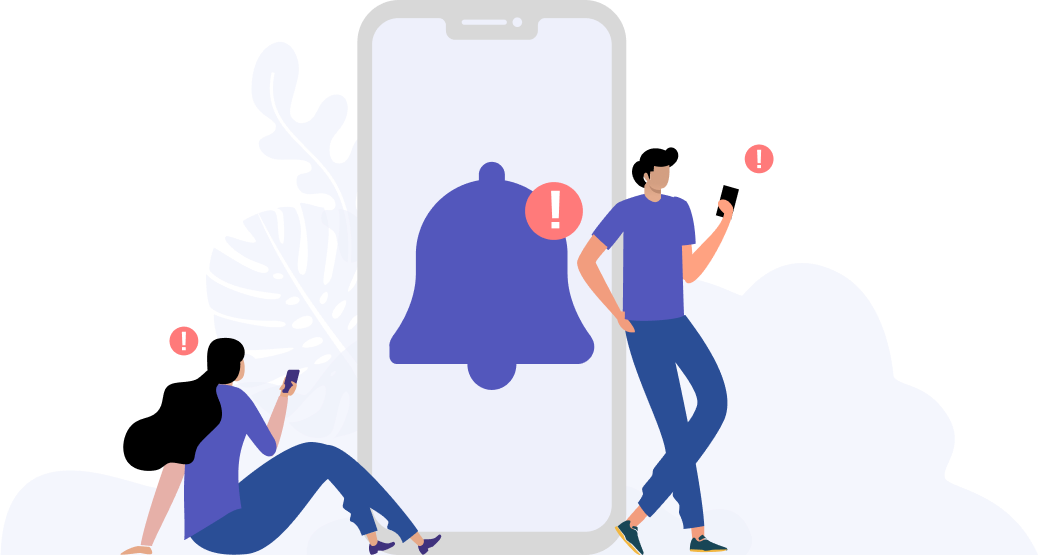Is Your Child Suffering From Information Overload?

Research shows that the average person sees as many as 5,000 advertisements a day [1]. Sounds like a lot, right? It makes sense if you think about it; ads are presented to us through many different channels; on the TV, on billboards, in the supermarket, at the shopping mall, and on the Internet.
Smart devices in particular give us access to an endless source of information, available at our fingertips. While this can be super convenient, it poses the question; is this constant access to information having a toll on us? More importantly, how can we prevent it from impacting on our little ones and the generation of the future?
What is information overload?
The term information overload was popularized by author Alvin Toffler in his book Future Shock (1970). It explains why we feel overwhelmed when exposed to too much stimulation. Our brains can only process so much information at a time, so when we are fed too much, we go into overdrive and lose the ability to make decisions.
Information, especially in the form of glossy advertisements, can be like candy to a child’s brain. You’ve probably seen it before; any time a child is given a smart device, they become transfixed and can spend vast amounts of time glued to the things. This makes them highly susceptible to information overload; they are endlessly curious and, at the same time, lack the self-control and ability to switch off.
Spending extended periods of time on their smart devices can cause kids to feel tired, overwhelmed, and unable to concentrate on other tasks. This can impact on their ability to complete homework, get to sleep, and focus in social situations.
This doesn’t sound ideal, huh? So, you must be asking, how do we make sure our kids don’t suffer from information overload?

Parents and children using mobile phone in living room
How to prevent information overload in your kids
Unfortunately, kids don’t come with an instruction guide on how to raise them. And we can’t necessarily ask our parents how to combat this very modern problem. Nonetheless, there are plenty of steps you can take to prevent your kids from being exposed to too much information. Here are three top tips:
1. Block ads
On most search engines, you can install an ad blocker extension to get rid of unwanted ads. This can help reduce Internet clutter and also prevent your kids from clicking on inappropriate sites.
2. Encourage regular breaks
Getting your child to take a break every 30 minutes can help prevent information overload and also take some of the pressure off their eyes. Staring at a screen for too long has been shown to negatively impact eye health, in some cases leading to short-sightedness or myopia.
3. Switch off before bed
Browsing the internet too late at night can trick the brain into thinking it’s still daytime. The blue light emitted by screens can also suppress the production of the sleep hormone melatonin. It is recommended to switch off devices at least an hour before bedtime to prevent insomnia.
A complex problem… with a simple solution.
Parenting can be tough, especially in the rapidly changing, increasingly digitized world of the 21st century. But don’t forget, you’re not on your own! Apps like plano can help make it easier to prevent information overload in your kids.
plano runs in the background of your child’s phone and reminds them to use their device responsibly (e.g. to take a break every half an hour). If your child displays responsible screen behaviour, they are rewarded with points which they can redeem in the plano shop to request fun, device-free activities. This points-reward system helps incentivise your kids to maintain a healthy relationship with their smart device through the use of positive reinforcement.
Even more, plano’s “blue light filter” function can be used to change the color of your child’s screen so that it emits red and yellow hues rather than the harmful blue light. This helps prevent melatonin suppression to make sure your little ones get to sleep on time!
Teaching your kids how to live in the “Information Age”.
The Internet isn’t all that bad, it’s a wonderfully convenient tool that’s great when used in moderation. It’s not so much about banning the Internet or smart devices completely but making sure our kids develop a healthy relationship with them. It’s the same with junk food; we can give our kids sweets every now and then, but it would be silly to give them reign over a whole candy store!
These three tips can help foster in your child a good relationship with their smart device so that they can avoid information overload and live happy and healthy lives.

References:
[1] Story, L. (2007). Anywhere the Eye Can See, It’s Likely to See an Ad. Retrieved 14 July 2020, from https://www.nytimes.com/2007/01/15/business/media/15everywhere.html
Tools Designed for Healthier Eyes
Explore our specifically designed products and services backed by eye health professionals to help keep your children safe online and their eyes healthy.





